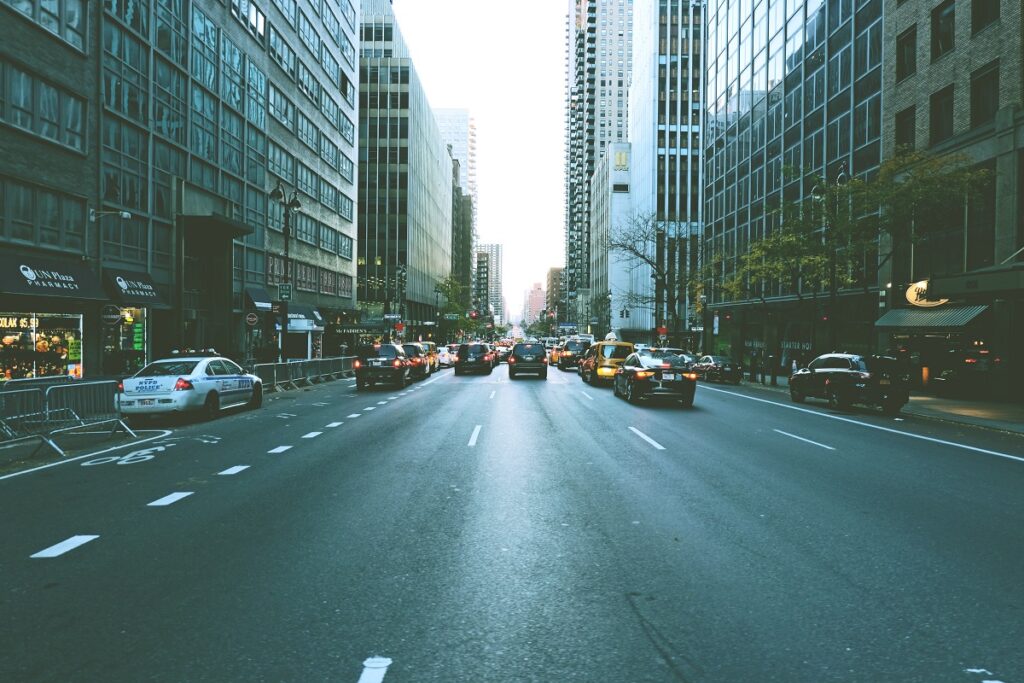Copious amounts of traffic, impatient drivers, lack of available or easy-to-get-to parking – driving in the city can be a stressful experience. This is especially true for disabled drivers.
Depending on the size and type of city you live in, there are typically laws surrounding how many disabled parking spots there need to be at any given location, as well as rules that state that disabled drivers can park at metered spots without having to pay for their time. With those requirements in place, it can be easy to assume that disabled drivers have it easy when parking in busy metropolitan areas – but the opposite can actually be true. Here’s why parking in cities can be so stressful for disabled drivers, and how you can improve your city parking to reduce stress.
Street parking anxiety
Parking anxiety is something many people go through, even if they don’t have a disability. For those who do, levels of anxiousness can increase, particularly in a busy city. Street parking anxiety often hits before you even get to the spot as you wonder, will you find a spot that’s close enough to your destination? This can cause your body to respond with symptoms of anxiety such as sweaty palms, tension, heart palpitations, difficulty breathing or shallow breathing, and a feeling of claustrophobia.
If you arrive to your destination and realize that there are not street spots available – or worse, that designated handicap spaces are being abused by drivers who don’t need them – this can heighten your anxiety and make it even more difficult to cope with. But the thing with parking anxiety is that, for disabled drivers, it’s a completely normal reaction. City parking for those who need accommodations can be very tricky to navigate.

On-street parking problems
On-street parking can be a blessing for those with disabilities if accessing a spot is a seamless experience. In a busy and bustling city, however, on-street parking is rarely easy. From having people parked illegally in spots they’re not supposed to be in, to trying to fit into small spots that require parallel parking, it can be a bit of a nightmare!
So if you’re disabled and all the spots on the street near to your destination are filled, what can you do? Often, people are left circling the area waiting for a spot to open up or trying to find one that is close enough for them to get to their destination. This, coupled with parking anxiety, can make driving and parking in a high-population area more trouble than it’s worth.
Tips for parking in cities
Although parking in the city as a disabled person can be a difficult experience, there are ways to make it easier so you can get to where you need to go. Our first tip is to call ahead. If you’re going to an establishment, call and ask them about their accessible parking options and whether they can accommodate you. Since on-street parking is operated on a first-come-first-serve basis, they may not always be able to help with parking, but it never hurts to call ahead and ask.
If that fails, utilizing the latest and greatest in parking technology can be a great help. There are countless apps available now that can track and relay information about parking spots and areas that are available to you. Sometimes the app may not be able to provide you with a good spot, but it’s an excellent tool to have on hand just in case.

Disabled people who are planning a move into the city or already living there can take advantage of on-street parking by simply getting to know the neighborhoods you plan on parking in. This will give you the opportunity to know what times parking is impossible to find and the windows that will make finding a spot easier.
Lastly, when you feel that parking anxiety and can’t seem to find a spot close enough to your destination, you could find temporary parking further away to recoup. City driving is often stressful, and taking a break to help overcome those initial feelings of anxiety will allow you to take some urgency away from your need to park. Once you are able to calm the anxiety down, you can try again – and odds are you’ll have more luck on your second attempt.
City parking is always stressful, but it’s easier with the right permit. To find out if you qualify for a handicap parking placard in the city, contact Disabled Parking today.
Featured image by Daryan Shamkhali on Unsplash
